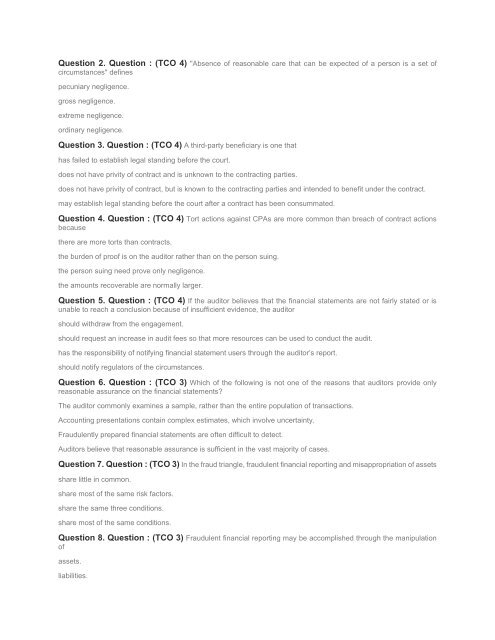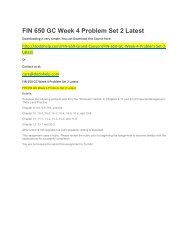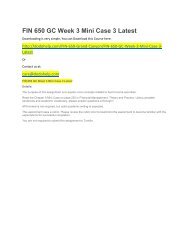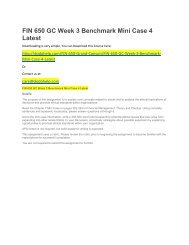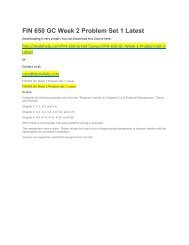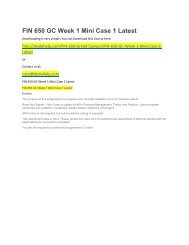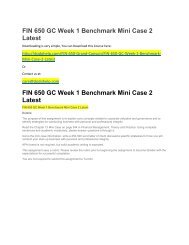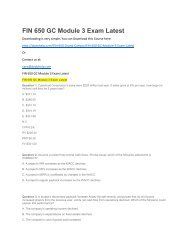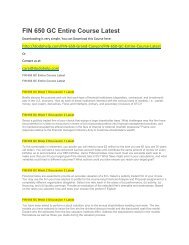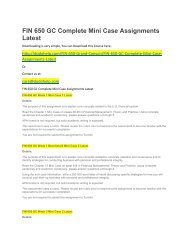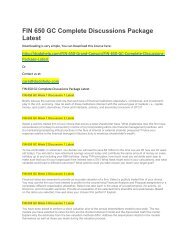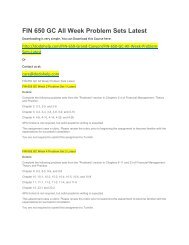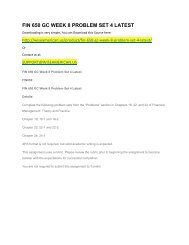ACCT 444 DeVry Entire Course
You also want an ePaper? Increase the reach of your titles
YUMPU automatically turns print PDFs into web optimized ePapers that Google loves.
Question 2. Question : (TCO 4) "Absence of reasonable care that can be expected of a person is a set of<br />
circumstances" defines<br />
pecuniary negligence.<br />
gross negligence.<br />
extreme negligence.<br />
ordinary negligence.<br />
Question 3. Question : (TCO 4) A third-party beneficiary is one that<br />
has failed to establish legal standing before the court.<br />
does not have privity of contract and is unknown to the contracting parties.<br />
does not have privity of contract, but is known to the contracting parties and intended to benefit under the contract.<br />
may establish legal standing before the court after a contract has been consummated.<br />
Question 4. Question : (TCO 4) Tort actions against CPAs are more common than breach of contract actions<br />
because<br />
there are more torts than contracts.<br />
the burden of proof is on the auditor rather than on the person suing.<br />
the person suing need prove only negligence.<br />
the amounts recoverable are normally larger.<br />
Question 5. Question : (TCO 4) If the auditor believes that the financial statements are not fairly stated or is<br />
unable to reach a conclusion because of insufficient evidence, the auditor<br />
should withdraw from the engagement.<br />
should request an increase in audit fees so that more resources can be used to conduct the audit.<br />
has the responsibility of notifying financial statement users through the auditor’s report.<br />
should notify regulators of the circumstances.<br />
Question 6. Question : (TCO 3) Which of the following is not one of the reasons that auditors provide only<br />
reasonable assurance on the financial statements?<br />
The auditor commonly examines a sample, rather than the entire population of transactions.<br />
Accounting presentations contain complex estimates, which involve uncertainty.<br />
Fraudulently prepared financial statements are often difficult to detect.<br />
Auditors believe that reasonable assurance is sufficient in the vast majority of cases.<br />
Question 7. Question : (TCO 3) In the fraud triangle, fraudulent financial reporting and misappropriation of assets<br />
share little in common.<br />
share most of the same risk factors.<br />
share the same three conditions.<br />
share most of the same conditions.<br />
Question 8. Question : (TCO 3) Fraudulent financial reporting may be accomplished through the manipulation<br />
of<br />
assets.<br />
liabilities.


